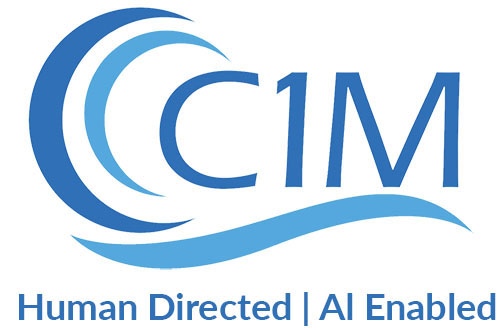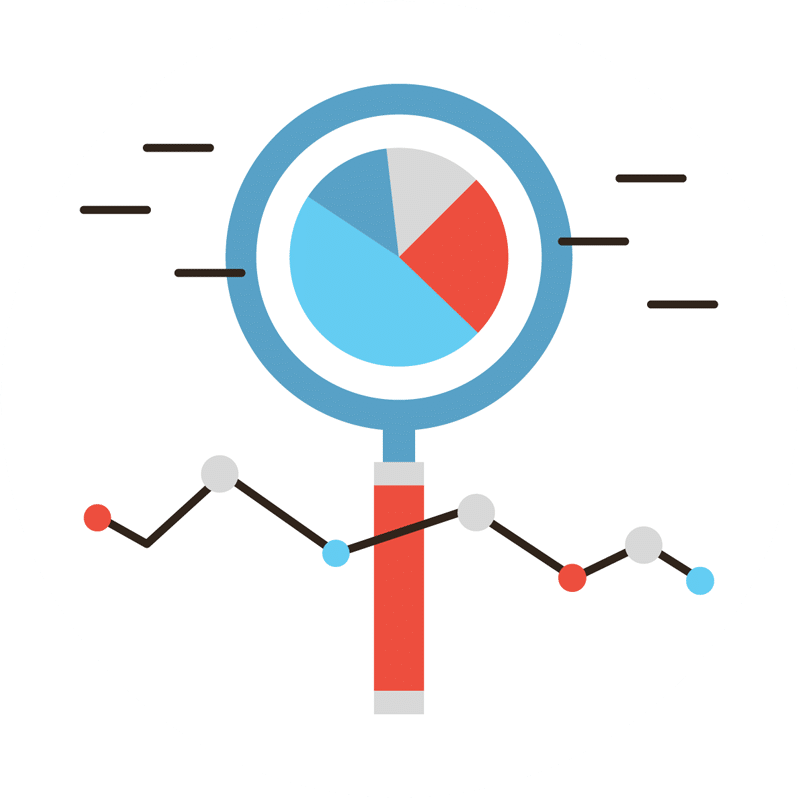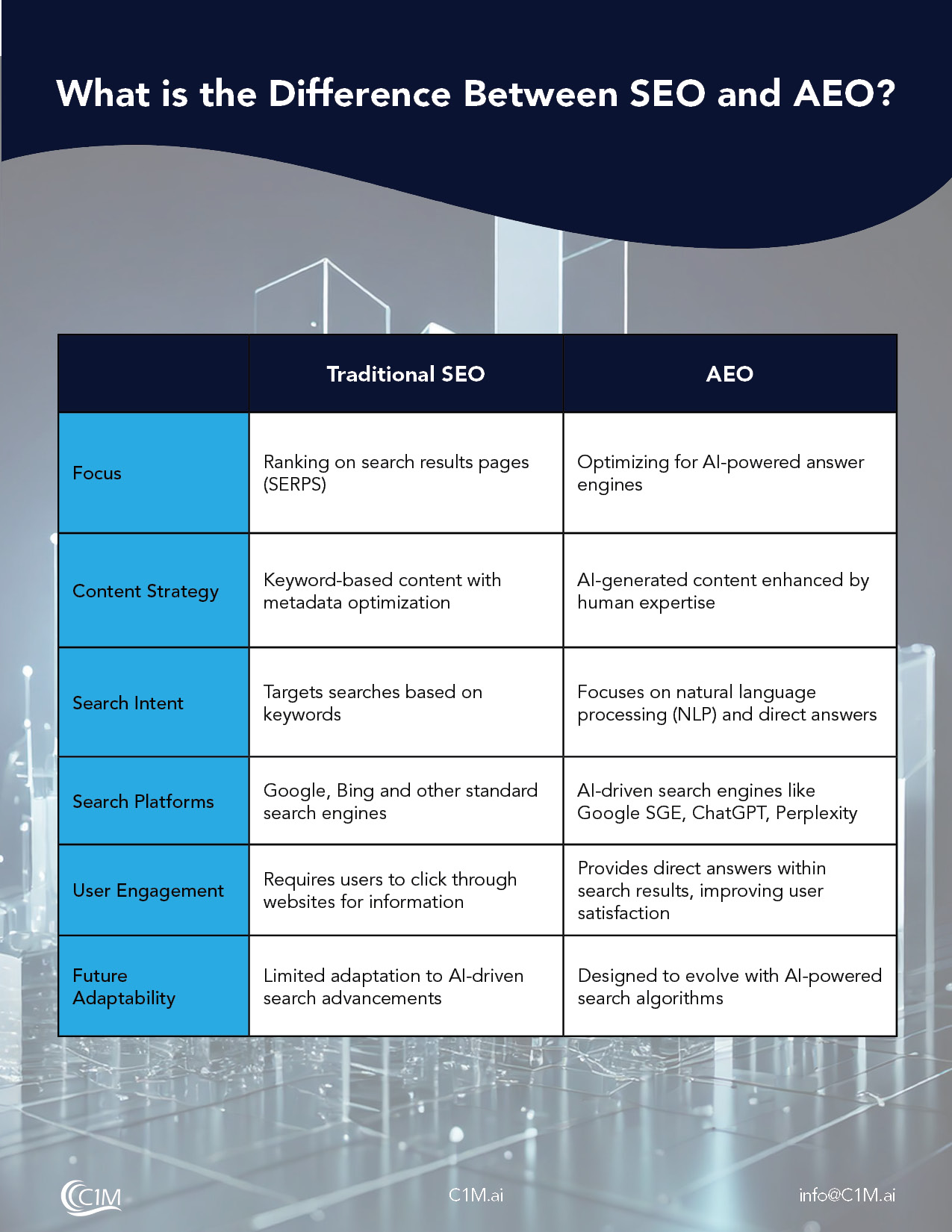
“Artificial intelligence (AI) holds extraordinary potential for both promise and peril. Responsible AI use has the potential to help solve urgent challenges while making our world more prosperous, productive, innovative, and secure.”
This is the first line of an Executive Order on the Safe, Secure, and Trustworthy Development and Use of Artificial Intelligence issued by the White House in October 2023 This announcement demonstrates the growing prominence of artificial intelligence (AI) in every corner of the business world.
According to recent studies, 73% of businesses use or plan to use AI-powered chatbots (conversational AI) for instant messaging. In addition, 61% of companies use AI to optimize emails, while 55% use AI for customer services, such as providing personalized recommendations or fielding customer inquiries.
AI Business Solutions for Your Business
However, this is just the tip of the iceberg when it comes to how small businesses can utilize AI technology in their operations.
There are many ways AI can be used to reduce costs, grow revenue, simplify manual tasks, and identify opportunities for a business to gain a competitive advantage. From the financial industry to healthcare to big data-driven companies, artificial intelligence or machine learning offers significant benefits and future trends toward more AI-powered initiatives in businesses of all sizes.
Understanding the benefits of AI takes time, and a business needs to understand the fundamentals of leveraging AI in the workplace before AI -powered tools can be launched and implemented.
From data collection to garnering super-targeted customer insights, here is a closer look at how artificial intelligence and machine learning are changing everyday business processes from the inside out.
Table of Contents
Artificial Intelligence and Human Collaborations
AI Business Solutions – The Benefits of AI in Business
The Challenges and Ethical Considerations of Using AI tools for Business
Artificial Intelligence and Ethical Concerns
How to Implement Machine Learning Solutions into your business
AI Business Solutions with C1M
What is artificial intelligence?
Artificial intelligence (AI) uses machine learning algorithms to allow AI-powered tools and other artificial intelligence applications to learn and process information, similar to the way human intelligence works.
A broad example of artificial intelligence is natural language processing. In natural language processing, AI utilizes machine learning to generate large language models, which can comprehend and generate human language text by analyzing massive data sets of verbiage and language. This natural language processing is perpetual, allowing AI technology to become better at fielding customer inquiries or requests in common tools like AI chatbots.
Essentially, the machine learning of AI technology is similar to human capabilities in that AI systems are constantly collecting new information and learning as they go. Feeding off an infinite source of historical data, AI technology creates a constantly perpetual system of improvement that can lead to a wide range of equally perpetual business benefits.
Artificial Intelligence and Human Collaboration
Businesses in multiple industries are embracing the key benefits of AI and machine learning. In addition, while artificial intelligence is becoming the norm, the new cognitive technologies that are inherent in AI have brought some suspicion and concern.
One of the most significant touchstones in the artificial intelligence debate is the worry that artificial intelligence is replacing human capabilities, which will make humans in varying workforce sectors obsolete.
However, the key fact to remember is that artificial intelligence is best used to enhance human capabilities, not replace them.
Therefore, implementing AI into your business does not replace information technology departments, legal departments, human resources, security teams, or any instrumental aspect of your workforce. Instead, artificial intelligence allows your business to reduce human error while allowing your employees and business leaders a new arsenal of tools that streamline time- consuming tasks.
AI business Solutions – the Benefits of AI in Business and the best ways to use AI in your operations
As noted, AI systems can streamline repetitive tasks while allowing a business to grow revenue in many ways. Here are just a few examples of business AI applications.
Content Generation
Using machine learning to craft verbiage, generative AI can help companies create content for websites, social media posts, email marketing campaigns, streaming services, press releases, and more. Generative AI can be used for everything from business or accounting documentation to snazzy marketing content. Additionally, it can help with transcribing and translating languages, allowing businesses to expand their opportunities in new and international markets.
There is a prominent fear that generative AI will replace human writers and content creators, but this is not the case. Instead, generative AI provides the data analysis required for the content backbone. At the same time, creative humans fill in the blanks to ensure accuracy and create elevated content for all aspects of business operations.
Customer Service and Support
AI and machine learning have revolutionized the customer experience by creating more accurate responses to common customer inquiries. With AI-powered customer service tools, like conversational AI, businesses can route customers to the exact information they require without excess effort or human involvement.
In fact, recent studies on customer preferences have shown that conversational AI (AI chatbots) is not only the new normal, but they also provide a better customer experience.
Consider the frustration of using an old and automated customer service phone tree, where you had to punch in a series of numbers before you were even close to obtaining the information you needed. (Or, and more likely, you shouted “human” or “real person” into the phone after several frustrating minutes of getting nowhere and going in circles.)
AI helps eliminate this unnecessarily long pattern by understanding customer inquiries and providing the right response or data based on the precise query. As a result, artificial intelligence-powered chatbots save time for customers and employees alike. Best of all, business AI tools like AI chatbots are available 24 hours a day, seven days a week, so customers can have their questions answered on their schedule and at their convenience.
Marketing and Customer Insights
Imagine how effective your marketing campaigns could be if you had an in-depth insight into customer behaviors, customer preferences, and customer needs. Artificial intelligence provides exactly that.
One of the biggest benefits of AI is the competitive advantage it can give businesses when it comes to understanding their customers’ pain points, needs, and actions, and this in turn leads to more effective and specialized marketing campaigns across the board. Therefore, with the ability to constantly analyze data based on past customer behaviors and future trends through predictive analytics, artificial intelligence can make marketing campaigns perpetually better and more finely tuned as more data is gathered by a business over time.
Cybersecurity
Many businesses use AI tools for cybersecurity initiatives. AI tools can be instrumental in fraud detection, identifying suspicious transactions, and generating reports of weak links in a business’ cybersecurity and disaster recovery plan. Completely automated, these AI tools are especially essential in industries routinely targeted for cyberattacks due to their arsenal of sensitive information, like financial or healthcare data.
Best of all, cybersecurity-based AI tools can provide a detailed and evolving risk assessment, providing invaluable information for information technology personnel on how to protect a business from the inside out.
Human Resources
AI tools for HR professional can save time for a wide range of repetitive tasks in the human resources world. In addition, they can organize and filter through employee records, analyze and report routine data like payroll, assist with recruitment initiatives, help with employee onboarding, and much more.
Supply Chains and Logistics
AI can significantly impact the backbone of a business’s operations in many ways. For example, artificial intelligence can help predict supply chain needs and demands, analyze inventory, help streamline manual tasks like warehouse sorting or shipping, and help with scheduling processes and other operational procedures.
Financial Industry
AI tools can also help a business grow revenue by taking stock of its current income, and payments made and received. Simply put, financial services can benefit from quick and AI-driven data analysis that can assist with everything from fraud detection to future trends in costs and expenses. AI tools can help accounting departments and business leaders identify areas where they can save money or grow income by targeting various aspects of business’s financial operations.
In addition, there is no human error in these automated accounting and reporting initiatives, which means that a business benefits from the most accurate and detailed information possible. (For example, AI tools that concentrate on financial data can help ensure accuracy, which makes a business less at risk of an IRS audit during tax season. )
The challenges and ethical considerations of using artificial intelligence tools for business
Artificial intelligence can be integrated into all aspects of business operations. However, a business must consider some ethical and internal considerations before initiating a company-wide launch of AI tools to streamline operations.
Artificial Intelligence and Human Involvement
There has been global concern that artificial intelligence will replace human capabilities and transform the nature of the workforce. Therefore, businesses need to consider how adopting AI tools will affect their employees and their bottom line.
Massachusetts Institute of Technology professor John J. Horton has been studying the relationship between artificial intelligence and the modern workforce for years and recommends that businesses consider the following before using artificial intelligence to replace human-driven tasks.
- How much time on a task does artificial intelligence save?
- Can artificial intelligence perform the task as well as a human?
- How easy is it for a human to confirm that the AI output is accurate?
Essentially, before launching any AI tool, ensure that it will make the job easier – not more complicated – and that the results can be accurately verified and will concretely benefit a business.
Artificial Intelligence and Ethical Concerns
Another flashpoint when it comes to artificial intelligence is privacy and ethical concerns. The vast amounts of data collection and analytics that machine learning can perform mean that individuals’ data is more accessible than ever before, and this requires some oversight to ensure that your customer’s data is not abused.
It should also be noted that because machine learning and AI rely on historical data alone and not human empathy, there can be some inherent bias that trickles in and needs to be accounted for. For example, researchers at Carnegie Mellon University discovered way back in 2015 that Google’s online advertising algorithm reinforced gender bias around job roles by displaying high-paying positions to men more often than women. In short, human supervision is required to watch for these potential but unintentional biases and provide common sense interventions when artificial intelligence cannot do so.
Integration and Training for AI Business Tools
One of the biggest challenges of integrating AI tools in business operations is potential skill gaps and training. After all, artificial intelligence is a very new technology, and an established workforce may not have the inherent database of knowledge required to understand AI tools and how they function.
As such, before a business initiates artificial intelligence into their everyday operations, they need to have a training and development plan in place for all departments that will be affected. The business benefits of artificial intelligence can only be realized when the human employees behind the scenes understand the technology and how to best use AI to secure a competitive advantage.
How to implement machine learning solutions into your business
Identifying the right AI tools and initiatives that lead to multiple business benefits is not an easy task.
There are thousands and thousands of options when it comes to AI-powered tools and practices. Therefore, the best machine learning solutions for your business may be different than those of your competitors or businesses in other industries.
As such, the best way to proceed when it comes to adapting artificial intelligence to your business operations is to have an expert resource that can guide the way.
AI Business Solutions with C1M
At C1M, we are at the forefront of artificial intelligence and machine learning solutions. We can also help you analyze and integrate AI systems into every aspect of your operations, from your cybersecurity initiatives to your legal and finance operations to your marketing campaigns.
The best thing a business can do when it comes to artificial intelligence is to have a detailed and comprehensive plan that seamlessly integrates AI into its operations. From employee training to utilizing these new tools to your best advantage, you need a tailored solution targeting your business benefits.
Reach out to C1M today to learn more about implementing the best AI tool for your business. With an expert like C1M behind the scenes, you can implement AI solutions in your operations that will revolutionize your business’ productivity and profitability from the inside out.








